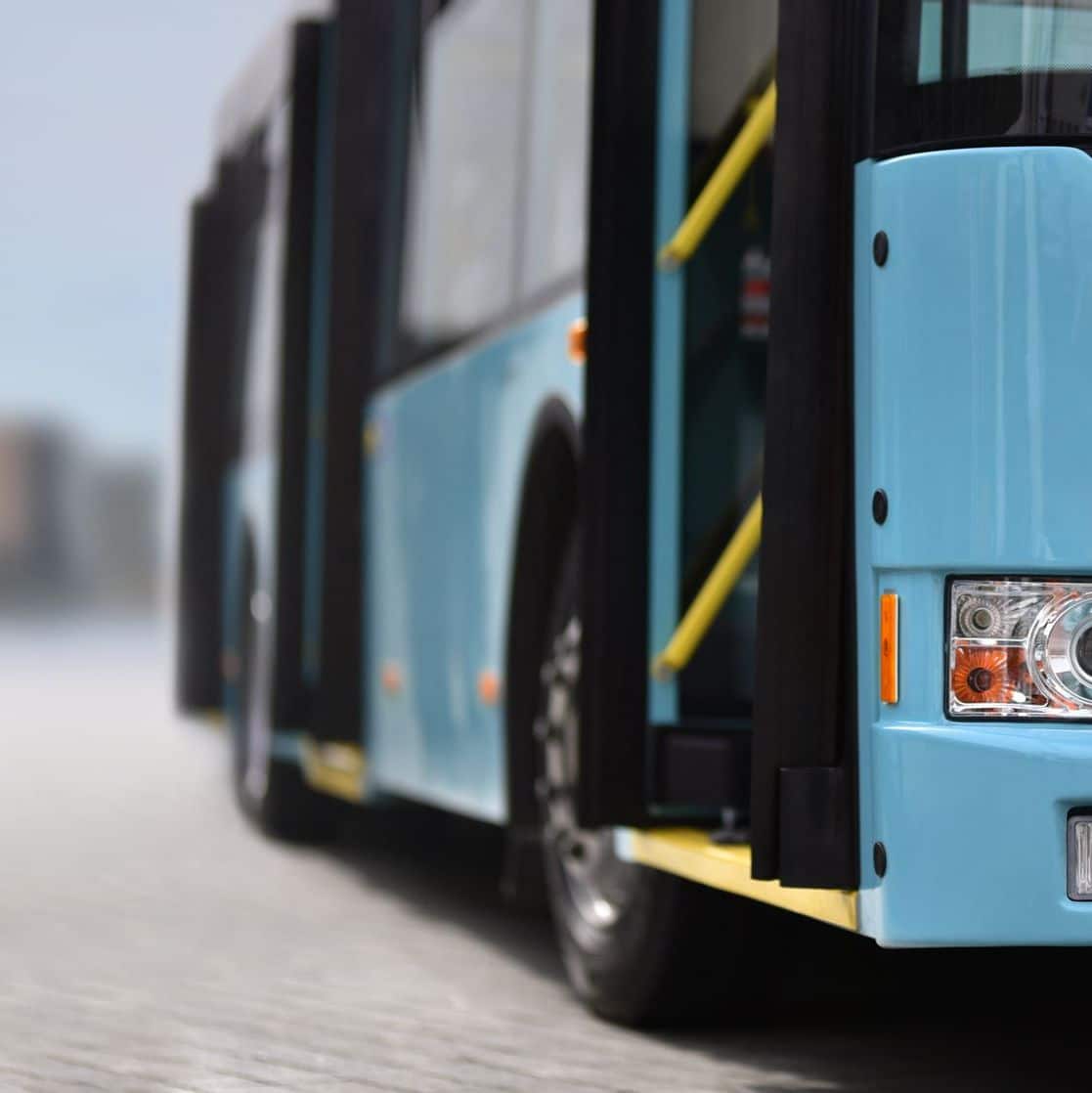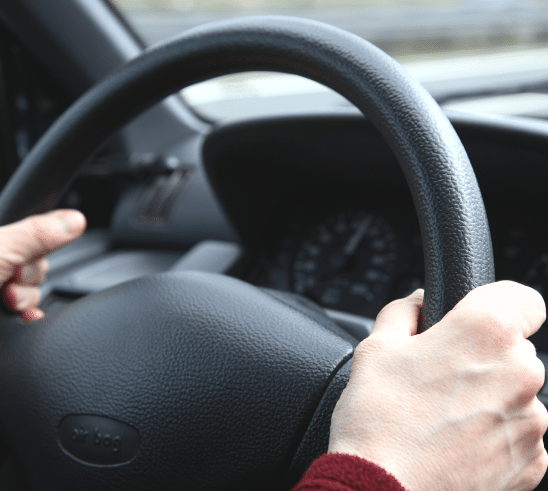DUI as a commercial driver is a much more serious charge than a typical non-commercial driver DUI and can have a lifelong impact on your career. Contact Gressley & Donaldson to find out how we can help you get a DUI with a CDL dropped.
One of the most crucial lessons every CDL driver from bus driver to truck driver will undergo is the seriousness of a DUI with commercial driver’s license VC 23152(d). Not only are the criminal penalties more severe, but so are the career repercussions that come along with them. If you’re convicted of a DUI while driving a commercial vehicle, your career as a DCL driver may be completely finished as a result, even with your first offense.
Not only will CDL drivers need to be aware of the seriousness of driving under the influence, they also need to know the specific guidelines that apply to them.
Some current charges are not eligible under PC 1001.36(d). These include Our law firm will not only outline these CDL-specific requirements in the sections below, but we’ll also walk you through some defense strategies our legal team may use to get a client a lesser sentence or a full acquittal should they find themselves charged with DUI with commercial driver’s license VC 23152(d).
If you’ve been charged with DUI with commercial driver’s license VC 23152(d), don’t give up hope. Gressley & Donaldson has many years of experience when it comes to DUI defense. Contact us today to learn about the many cases our firm has won.
Definition Of Vehicle Code 23152(D) Commercial Vehicle DUI In California
The court must be satisfied that your treatment plan fits your mental health needs. You can be referred to inpatient or outpatient resources, including While nearly all drivers in California know that the legal blood alcohol content (BAC) limit is 0.08%, drivers who have undergone training as commercial drivers know that this limit is reduced when driving a commercial vehicle. According to California Vehicle Code 23152 (d):
“It is unlawful for a person who has 0.04 percent or more, by weight, of alcohol in his or her blood to drive a commercial motor vehicle, as defined in Section 15210. In a prosecution under this subdivision, it is a rebuttable presumption that the person had 0.04 percent or more, by weight, of alcohol in his or her blood at the time of driving the vehicle if the person had 0.04 percent or more, by weight, of alcohol in his or her blood at the time of the performance of a chemical test within three hours after the driving.”
Essentially, because commercial vehicles are larger and heavier than normal vehicles, are typically more challenging to operate, and often carry important cargo, if your blood alcohol level is over 0.04% (as opposed to the typical 0.08% legal limit) while driving a commercial vehicle, you will be charged with a DUI.
What is a commercial driver’s license?
A Commercial Driver’s License (CDL) is a special type of driver’s license required in the United States and some other countries to operate vehicles that are classified as commercial motor vehicles (CMVs). These vehicles include trucks, buses, and other large vehicles used for commercial purposes.
The CDL system typically has different classes, which determine the types of vehicles a driver is authorized to operate. These classes may include:
- Class A: Allows drivers to operate combination vehicles, such as tractor-trailer rigs, where the gross vehicle weight rating (GVWR) of the vehicle being towed is over 10,000 pounds.
- Class B: Permits drivers to operate single vehicles with a GVWR of 26,001 pounds or more, as well as smaller vehicles towing trailers with a GVWR of under 10,000 pounds.
- Class C: Covers vehicles that do not fall into Class A or Class B categories but are designed to transport 16 or more passengers (including the driver) or carry hazardous materials.
Obtaining a CDL typically involves passing written knowledge tests, practical skills tests, and meeting other requirements specific to the state or jurisdiction where the license is sought. CDL holders are subject to certain regulations and standards designed to ensure the safe operation of commercial vehicles on public roads.

Special DUI Hazards For Commercial Drivers
Driving under the influence is unsafe for all drivers. But, California law enforcement views driving a commercial vehicle while under the influence as especially irresponsible because commercial vehicles pose a bigger safety risk.
Additionally, commercial drivers are often more affected by the effects of drugs or alcohol because they are driving for long stretches of time and in some cases, have added distractions such as operating a lift or managing the behavior of multiple passengers. For these reasons, lawmakers have decided to enact more strict laws and penalties for commercial vehicle drivers in California.

Impacts Of A DUI Offense On A Commercial Driver’s License
Apart from criminal penalties, the California DMV will also issue its own set of penalties following a DUI conviction. When a commercial vehicle driver is convicted of a DUI, these penalties become especially harsh, but simply outlined; if you are convicted of a DUI in a commercial vehicle, you will receive an automatic one-year suspension of your CDL, in addition to criminal penalties.
If you receive a second DUI, you will receive a permanent revocation of your CDL. This license suspension will not only affect your CDL but also your non-commercial license as well.
Some current charges are not eligible under PC 1001.36(d). These include Unfortunately for commercial drivers, even a one-year suspension will carry serious consequences for your career. You will be required to notify your employer of your suspended license which means you will likely lose your job due to not being able to work for at least a year.
A DUI with a commercial driver’s license VC 23152(d) will also be on your record, so you will likely have trouble finding work as a commercial driver.
What are the penalities for commercial vehicle DUI VC 23152(d)?
In addition to your license suspension, you’ll be facing all of the same penalties as you would if you were if you had a non-commercial license. This includes:
- Fines: A first-time, second-time, or third-time DUI conviction may result in fines, which can range from $390 to $1,000.
- Probation: Typically, individuals may be placed on probation for three to five years for a first, second, or third offense.
- Jail Time: While a first offense and second offense often do not involve significant jail time, there may be a mandatory minimum sentence, which can range from a few days to 6 months, depending on the circumstances. For a third offense, you may be looking at up to a year.
- Alcohol Education Program: Completion of a state-approved DUI education program is usually required for all DUI incidents, and the length will vary depending on how high your BAC was at the time of your arrest.
In the first three incidents of DUI, you will be charged with a misdemeanor, however, if you are charged a fourth time, you could possibly be looking at a felony. This can also happen if an injury results from your drinking and driving, which our firm will address in the sections below.

Have you been charged with a DUI causing injury?
Gressley & Donaldson can help! Our firm has successfully defended our clients who have faced serious penalties as a result of this charge. Call us today for a consultation. Our team will carefully look at the specific circumstances in your case and begin mapping out a defense strategy.
DUI resulting in injury
Whether a DUI results in an injury or not, hiring an effective criminal defense lawyer is critical to mitigating the penalties you’ll be facing.
However, if you’ve been charged with a DUI that resulted in the injury or death of another person, the penalties you’ll be facing are much more severe. You’ll also be required to pay restitution to the victim or victims injured as a result of your conviction. A DUI causing injury can be charged with either a misdemeanor or a felony.
Misdemeanor DUI causing injury
The criminal penalties you may face if your DUI causing injury is charged as a misdemeanor are essentially the same as a typical DUI with a few exceptions:
- Fines: A misdemeanor DUI causing injury conviction may result in fines, which can range from $390 to $5,000.
- Probation: If given probation, the term will typically last for three to five years
- Jail Time: If given jail time for a DUI, the maximum sentence is doubled if a person is injured as a result of the incident – up to one year.
- License Suspension: In addition to a one-year minimum suspension, you’ll also be facing a maximum three-year suspension of your CDL.
Like any other DUI, you’ll also be required to take a DUI education course which will last either 3, 9, 18, or 30 months depending on the severity of the incident and your BAC level at the time of your arrest.
Felony DUI causing injury
When charged as a felony, a DUI causing injury because much more serious. Depending on your existing record an specific circumstances, you could face:
- Fines: A felony conviction of a DUI with injury will likely result in fines, which can range from $390 to $5,000.
- Prison Time: Felony charges typically result in some prison time. You could face time anywhere from a few days to four years in state prison depending on the seriousness of the incident.
- License Suspension: You’ll be given an automatic five-year driver’s license suspension.
In addition to the above, if the injury is considered a great bodily injury, you’ll also be given a strike on your record in accordance with California’s Three Strike Policy.
You’ll also be categorized as a Habitual Traffic Offender which will raise your insurance rates for at least three years. Lastly, you’ll also need to attend DUI school for the court-mandated length. For a felony DUI with injury, this usually means a nine-hour course or longer.
Best Defenses To Commercial Vehicle DUI Charges
Because our firm has worked primarily with clients who were charged with DUI-related charges, we have had the opportunity to use a wide range of defenses in DUI with Commercial Driver’s License VC 23152(d) cases.
Here are a few of the more common defenses we have successfully used to get this devastating charge either dropped or reduced to a lesser charge:
You weren’t driving a commercial vehicle at the time of your arrest
Many times when a police officer pulls over a driver for driving under the influence of alcohol or drugs, the driver may hand the police officer their CDL instead of their non-commercial driver’s license. This sometimes results in the officer mistakenly claiming that the DUI was committed in a commercial vehicle.
While you may still face regular DUI proceedings, the penalties you’ll accrue if convicted will be much less serious if charged with a normal DUI. More importantly, in order to be charged with a DUI in the first place, you need to be over the legal BAC limit. But, if you were charged with a DUI with Commercial Driver’s License VC 23152(d), the threshold is lower: a 0.04% BAC, versus a 0.08% BAC in a non-commercial vehicle.
Your Fourth Amendment rights were violated
Regardless of whether you were actually driving under the influence, if the arresting officer fails to follow the correct procedures, it could jeopardize the prosecution’s entire case. There are many ways this could happen. Simply put, your Fourth Amendment rights protect you from being arrested without probable cause, searched without reasonable suspicion, or implicating yourself without being read your Miranda rights.
Let’s say that you were driving a commercial vehicle and a police officer stopped you for speeding and noticed an open beer bottle in the console. The act of speeding allows the police officer to pull you over and the beer bottle provides the officer with probable cause for a DUI and an arrest can likely be made as a result.
However, let’s say that the police officer doesn’t have a reason for pulling you over in the first place, and without your consent, he goes through your purse finding a flask of whiskey. Because there was no reason for the police officer to stop you in the first place, a case can be made for a Fourth Amendment violation which may result in the entire charge being thrown out.
You were under the legal limit
Because the BAC limit is 0.04% when a driver is operating a commercial vehicle, drinking more than a single beer in a one-hour period can be a major risk. However, because the BAC limit is so low, it also leaves a large margin of error when it comes to testing BAC levels, especially with breathalyzers. If the breathalyzer wasn’t properly calibrated, your BAC could read much higher than it actually is.
Moreover, if your BAC isn’t actually recorded at all and only a field sobriety test is given, our legal team will have an even greater chance of having your charge overturned. Field sobriety tests are notoriously inaccurate, and multiple studies have shown that there are many reasons why an individual might fail a field sobriety test including nervousness, a disability or disease, or exhaustion – a condition that CDL drivers are typically very familiar with.
You were facing duress or necessity
Though rare, there are some situations where the driver may have been forced to drive under the influence. In these situations, a case can be made for receiving a lesser charge or acquittal if we can prove that your life or someone else’s life would have been threatened if you didn’t drive under the influence.
Let’s say that you’re an off-duty garbage truck driver who has had a few beers at a local watering hole on your day off. While looking out the window, you notice that an unattended school bus filled with children is rolling slowly toward traffic. Without giving it a second thought, you run towards the school bus, turn on the ignition, and drive it to a safe location saving the children inside.
A police officer sees this happen and arrests you, not realizing that your act of drinking and driving saved the lives of multiple people. In this situation, our law firm would likely be able to defend the necessity of your technically illegal decision.
Frequently Asked Questions
If a commercial driver refuses to take a chemical DUI test, their CDL can be automatically suspended for three years under the state’s implied consent law, regardless of whether they are ultimately convicted of DUI.
You will be allowed to apply for a restricted license on a non-commercial driver’s license, but not a commercial license. You will also only be able to use your restricted license to go to and from court and DUI education classes.
Commercial drivers charged with DUI in California may be eligible for probation instead of jail time, subject to the discretion of the court and the specific circumstances of the case. Probation typically involves compliance with court-ordered conditions and may include requirements such as attending DUI education programs or completing community service.
Technically, yes, but only after 55 years.
It is possible, but entirely dependent on if the district attorney in your case agrees to a plea bargain.
Hire a lawyer who is experienced in defending DUI cases.
Ultimately, the most crucial difference between someone convicted or acquitted of a DUI with Commercial Driver’s License VC 23152(d) is an effective DUI lawyer. Our firm has both the resources and tenacity needed to get you the results you deserve when it’s time to face the district attorney or judge in your DUI case. Contact Gressley & Donaldson for a consultation today.


